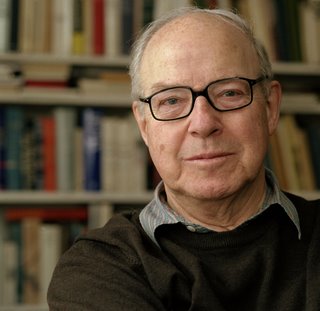Who Tells the Truth about Climate Change?
 Keywords: climate change; oil corporations; journalism; economic interests; global warming; disinformation; David Suzuki Foundation.
Keywords: climate change; oil corporations; journalism; economic interests; global warming; disinformation; David Suzuki Foundation.Do the oil corporations deceive us about climate change? If so, why?
I’ve always resisted the Marxian explanation of ideological opinion as based simply on one's economic interests. It seems insulting to attribute a person’s opinions to the material benefits that he would gain from persuading the general public to accept those views. I assume that few people are dishonest enough to twist the truth habitually.
Though I still avoid imputing others’ ideas to their private motivations, reality probably lies someplace in between plain yes and no. Not everyone distorts the truth for self-serving reasons, but some people do, some of the time. This happens when it comes to the explanation of global warming. Certain corporations seem to be conducting disinformation campaigns, attempting to discredit genuine scientists and mislead the public. What kind of mind would knowingly obstruct the dissemination of knowledge about a matter so important for the future of our planet? Can greed alone explain such behavior? I would feel morally defeated by having to adopt such a crass interpretation of human nature. But still …
In 1988 the World Meteorological Organization and the UN Environmental Programme established an Intergovernmental Panel on Climate Change (IPCC). Its mission was to evaluate the peer-reviewed, published scientific research so as to provide clear grounds for formulating policies. It has concluded that there is a consensus of scientific opinion that the climate is being affected by human activities and that most of the observed global warming over the past 50 years probably was caused by greenhouse gas increases. Likewise, the American Meteorological Society, the American Geophysical Union, and the American Association for the Advancement of Science have all officially recognized the overwhelming evidence in favor of this consensus position: that human beings are modifying the climate.
Professors Naomi Oreskes (see photo) and Roger Pielke, Jr. conducted a study of the scientific literature on climate change by analyzing 928 abstracts, published in refereed scientific journals between 1993 and 2003. Some 75 percent of these papers explicitly endorsed the consensus position, whereas the remainder addressed such topics as methodology and took no position on the anthropogenic interpretation of climate change. “Remarkably, none of the papers disagreed with the consensus position.”
Al Gore mentions this study in his film, An Inconvenient Truth, correctly concluding that there is no longer any controversy among scientists on this matter. Nevertheless, he points out that the press regularly depicts climate change as an unresolved question that, until now, has been neither established empirically nor explained. Why would the media misrepresent the status of scientific knowledge on this topic?
There are two reasons. First, journalists are taught to seek for “balance” in their reporting. The best way to fulfill this norm is to find and quote someone who disagrees with the new statement that is going to be reported. If no reputable scholar happens to be available to articulate the “other opinion,” the temptation is to find someone else – almost anyone – who will do so. Hence the baseless opinions of unqualified commentators often are reported as authentic.
Second, journalists can always find spokespersons for particular material interests, just as Marx suggested. With regard to climate change, the most obvious groups benefiting from the present state of affairs are the oil interests. And these companies, being well represented in government, are in a good position to influence the Bush Administration’s policies and even the public statements that government researchers can make. For example, the New York Times reported early this year that NASA’s top climate scientist James E. Hansen declared that his work was being censored by the government public affairs staff.
Chris Mooney, reporting in Mother Jones, notes that some fossil fuel companies — especially ExxonMobil — have been funding neoconservative organizations that try to undermine mainstream scientific findings on global climate change. He cites the Center for Public Integrity to show that Exxonmobil has spent $55 million on lobbying over the past six years. In addition, certain conservative think tanks such as the American Enterprise Institute for Public Policy Research also are providing reports for the policymakers, the media, and the general public that are designed to give the appearance of authentic science. Their papers are not, however, published in refereed scientific journals and therefore lack credibility among scientific researchers. These authors (who call themselves “climate change skeptics”) seek to delay action on climate change. One writer of such material, affiliated to the libertarian Cato Institute, is Steven Milloy, who publishes a website called JunkScience.com. Exxonmobil gave $40,000 to the Advancement of Sound Science Center, which is registered to Steven Milloy’s residential address, and another $50,000 to the Free Enterprise Action Institute, also registered to his home address. In one critique of a scientific paper, Milloy dismisses the current increases in global temperature by claiming that the represent only natural variability. Harvard oceanographer James McCarthy, who headed the research for that study, replied: “In order to take that position, you have to refute hundreds of scientific papers that reconstruct various pieces of this climate puzzle.” I am forced to accept this discouraging conclusion: Some moneyed interests do seem to be preventing the spread of important facts that are required for the preservation of our planet.
Yet this is only part of the story, for there is evidence that some other companies, including Shell, Texado, British Petroleum, Ford, General Motors, and DaimlerChrysler, have been converted and now recognize the importance of climate change. Even such business publications as The Economist are calling for action to combat global warming. Bart Mongoven, writing for Stratfor on July 27, claims that it is misleading to depict the cleavage of opinion about climate change nowadays as a split between “industry versus environmentalists.” Times have changed, and the various players have come to hold more complex positions that must be reported accurately. “Industry's view of the science behind public policy has changed markedly in recent years,” writes Mongoven. Moreover, according to the David Suzuki Foundation, “Most skeptics no longer deny that climate change is happening, but instead argue that the cost of taking action is too high — or even worse, that it is too late to take action. All of these arguments are false and are rejected by the scientific community at large.”
Panels of journalists and scientists held a meeting in Washington on July 25 to discuss the mainstream reporting of the issue. Both groups agreed that the “the greatest shortcoming has been in persistent portrayals of the issue as one of contentious scientific debate: In reality, the assembled scientists said, man-made climate change is generally accepted throughout the scientific community as a reality.” According to Mongoven, the mainstream media are now struggling to change their portrayal of climate issue, especially since business interests are now changing their tune, and since policy decisions are being deregulated and therefore are more often being made by the general public. It is increasingly important for the public to become better informed, and this will require for the news media to change the way they report issues. Journalists must focus more on the technical, rather than the political aspects. However, in doing so,
“a news outlet runs the risk of boring the public and losing sales. On the other hand, a shift in this direction also could dramatically increase the media's relevance in the policymaking process."
But nobody promised that it would be easy to report undesired news. We all — not just rich industrialists — have a tendency to block out whatever we don't want to hear. But the calling of journalism is honorable and necessary, so please bring it on, fellows. We need to hear the truth.







